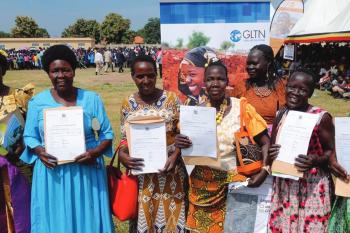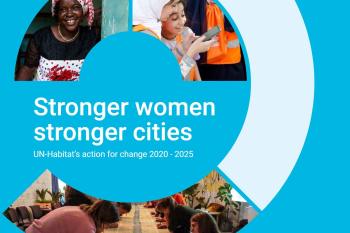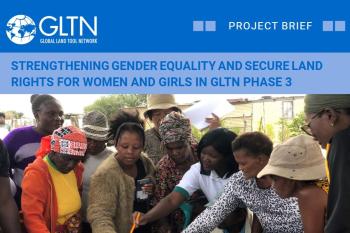
Read More
Gender Strategy for Land-at-Scale Uganda
Women’s Land Rights (WLRs) are fundamental human rights, foundational to gender equality and women’s dignity and instrumental in improving food security, effective climate action, poverty eradicati

Climate change affects everyone. Yet it hits the poor hardest, especially women and children, and those without rights to land. Landlessness and the lack of secure land tenure amplify the vulnerability of rural poor communities to the impacts of climate change. Yet, the challenges surrounding their lack of land access and insecure tenure rights are often overlooked in climate change discussions, policy-making, and program implementation. This publication shares twelve stories from Asia and Africa where communities seek to cope with climate change by claiming their rights to land. These case studies show how the absence of secure land rights make poor rural communities more vulnerable to climate change impacts and limit their ability to recover. They also illustrate how the lack of land rights prevents communities from engaging in climate adaptation and mitigation; disqualifies them from government compensation for loss and damage; deters them from implementing sustainable land use and governance practices; and, severely constrains their right to make decisions for their survival and resilience.

Women’s Land Rights (WLRs) are fundamental human rights, foundational to gender equality and women’s dignity and instrumental in improving food security, effective climate action, poverty eradicati

This publication presents a summary of UN-Habitat’s gender equality impact over the past five years, in line with the Beijing reporting cycle.

GLTN’s institutional commitment to gender equality and secure land rights for women and girls has been at the core of its work since inception in 2006.